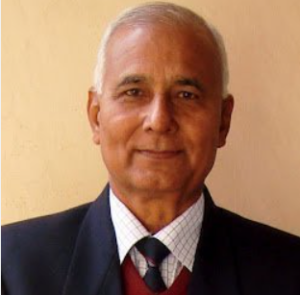Presentation: SR Darapuri, National President, All India Peoples Front
Courtesy: Grok

Dr. B.R. Ambedkar, a staunch advocate of state socialism and a socialist economy, emphasized economic justice, equality, and state intervention to uplift marginalized communities. His vision, as outlined in works like *States and Minorities* (1947), prioritized public ownership of key industries, equitable distribution of resources, and safeguards against economic exploitation. Given this, his reaction to today’s corporate and market-based economy would likely be critical, though nuanced, based on his pragmatic approach to social and economic issues.
Likely Reactions:
- Criticism of Corporate Dominance:
– Ambedkar would likely view the concentration of wealth and power in corporations as a form of economic inequality that undermines social justice. His belief in state control over industries like agriculture, insurance, and key utilities suggests he would oppose unchecked privatization and corporate monopolies.
– He might argue that the profit-driven market economy exacerbates caste and class disparities, as marginalized groups often lack access to capital, education, and opportunities in a competitive system.
- Concerns Over Marginalized Communities:
– Ambedkar’s focus on uplifting Dalits and other oppressed groups would lead him to critique the market economy’s failure to address systemic inequalities. He might point out that corporate-driven growth often bypasses rural and underprivileged populations, leaving them vulnerable to exploitation.
– He could advocate for affirmative action in the private sector, similar to his push for reservations in public institutions, to ensure representation and economic inclusion.
- Support for State Intervention:
– Ambedkar would likely call for stronger state regulation of markets to prevent exploitation and ensure equitable wealth distribution. His vision of state socialism included nationalizing key sectors to prioritize public welfare over private profit, which contrasts with today’s deregulation and free-market policies.
– He might propose policies like wealth taxes, land reforms, or public investment in education and healthcare to counter the inequities of a market-driven system.
- Pragmatic Engagement:
– While critical, Ambedkar was not dogmatic and recognized the need for economic progress. He might acknowledge the role of markets in driving innovation and growth but insist on robust checks to align them with social justice goals.
– He could support entrepreneurship and economic opportunities for marginalized groups, provided the state ensures a level playing field through subsidies, training, and access to resources.
Contextual Considerations:
– Globalization: Ambedkar might view globalization skeptically, as it often prioritizes corporate interests over local economies. However, he could see potential in global cooperation for social justice if it aligns with his egalitarian principles.
– Technology: He might appreciate technology’s potential to democratize opportunities (e.g., education, jobs) but criticize its corporate control, advocating for public ownership or regulation of tech platforms.
– Caste Dynamics: Ambedkar would likely highlight how caste networks influence corporate hiring and market access, perpetuating exclusion. He might push for policies to break these barriers.
Conclusion:
Dr. Ambedkar would likely oppose the excesses of today’s corporate and market-based economy, particularly its tendency to widen inequality and marginalize vulnerable groups. He would advocate for a mixed economy with strong state intervention, public ownership of critical sectors, and policies to ensure economic inclusion for Dalits and other oppressed communities. While open to market-driven growth, he would insist on aligning it with social justice and equality, staying true to his vision of state socialism as a tool for systemic change.









